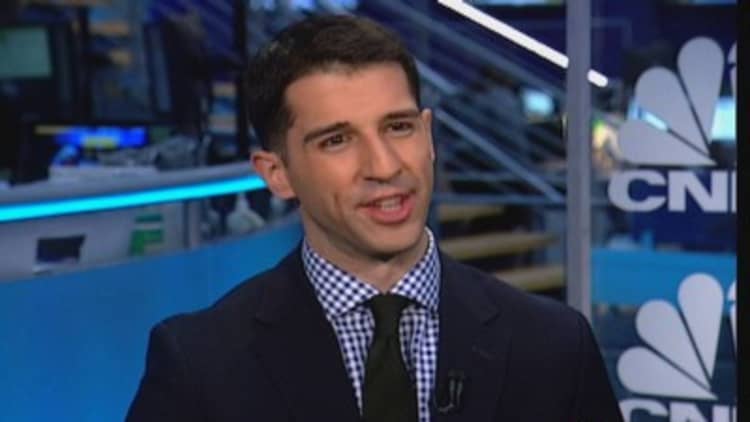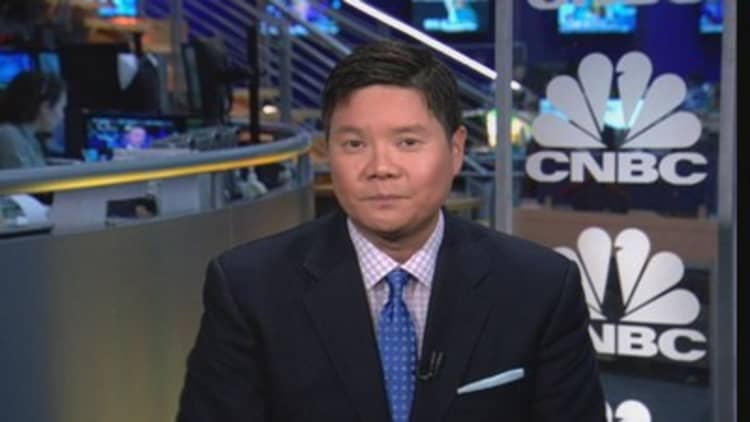
Whether the St. Louis Cardinals or Boston Red Sox win the World Series starting Wednesday night at Fenway Park, the big money owners—both from the hedge and private equity industry—are already earning handsomely.
Cardinals principal owner William DeWitt Jr. has spent much of his career in private equity with firms Reynolds DeWitt & Co. and DeWitt Capital Group. He bought the Cardinals in 1996 for a reported $150 million; the team won championships in 2006 and 2011 and the franchise is now worth an estimated $716 million as of March, according to Forbes.
Red Sox principal owner John Henry—worth an estimated $1.7 billion—also has an alternative investing background. He founded and ran hedge fund firm John W. Henry & Co. from 1982 until November 2012. Henry bought the Red Sox in 2002 with partners Tom Werner and Larry Lucchino for $380 million; the team won championships in 2004 and 2007 and is now worth $1.31 billion as of March, according to Forbes.

Only the New York Yankees ($2.3 billion) and Los Angeles Dodgers ($1.61 billion) are worth more.
(Read more: Billionaires' latest trophies are newspapers)
DeWitt and Henry are two of many investors who have played with professional sports teams with varying degrees of involvement. While Henry ran his investment firm and the Red Sox at the same time, others from the hedge fund industry tend to be more hands off.
Hedge fund managers with minority stakes in sports teams include Seth Klarman of Baupost Group (Red Sox); Phil Falcone of Harbinger Capital Partners (Minnesota Wild); Steve Cohen of SAC Capital Advisors (New York Mets); David Tepper of Appaloosa Management and Rob Citrone of Discovery Capital Management (Pittsburgh Steelers); Marc Lasry of Avenue Capital (Brooklyn Nets); and Paul Leff of Perry Capital (Oakland Raiders).
Team investors from private equity are usually more involved, consistent with their expertise in improving the value of companies.
Examples include Apollo Global Management co-founder Josh Harris and Blackstone Group senior managing director David Blitzer, who own the New Jersey Devils and Philadelphia 76ers. Oaktree Capital Management portfolio manager Stephen Kaplan co-owns the Memphis Grizzlies.
Platinum Equity founder Tom Gores owns part of the Detroit Pistons. And Bain Capital managing director Stephen Pagliuca is co-owner of the Boston Celtics.
Pagliuca recently noted both similarities and differences between sports and private equity investing at a conference in September.
"You have to go into this with the fact that these teams are community institutions and you want to try and win—and you have to spend money to win. It's not a P-and-L (profit and loss), bottom line-driven business," Pagliuca said at the Bloomberg Sports Business Summit in New York.
"Now what's happened is the fact it has become so popular, people invested in the teams, people become emotional about it," he added. "Television rates have gone up. Season tickets have gone up. And it has been a very, very valuable property. But I don't think you can go into it with a cost-cutting, bottom-line mentality. Otherwise you'll fail."
(Read more: WorldSeries tickets for $12? ... Yes, in 1963)
Henry and DeWitt have had different levels of success managing their investment businesses and baseball teams at the same time.
DeWitt was arguably more successful at the two.
Besides the Cardinals, DeWitt and longtime business partner Mercer Reynolds have invested in a variety of businesses through their Cincinnati-based private equity firm.
They include Reynolds Plantation, a 10,000-acre golfing community and resort in Greensboro, Ga.; Tech Lighting, a Chicago-based manufacturer of architectural lighting systems; and Provider Synergies, a pharmaceutical services business in Cincinnati.
Part of that dual success may be because baseball is the family business. DeWitt's father, Bill DeWitt Sr., worked for the Cardinals and St. Louis Browns; the team later moved to Baltimore as the Orioles. DeWitt Jr. also made investments in the Texas Rangers and Baltimore Orioles. He sold both stakes before putting together a group of investors to buy the Cardinals (DeWitt Jr.'s son, Bill DeWitt lll, is also president of the team today).
Henry had less success doing both at once in recent years.
His West Palm Beach, Fla.-based commodities and futures trading investment business managed as much as $3.5 billion in 2005. But many of his funds performed poorly in subsequent years and most clients pulled their money. Assets under management fell to less than $100 million late last year and Henry decided to stop running outside capital.
While his hedge fund declined, Henry reinvented himself as a sports mogul.
His Fenway Sports Group portfolio of companies includes the Red Sox and their stadium Fenway Park; Liverpool FC, an English Premier League football club and its home, Anfield Stadium; Fenway Sports Management, a sales and marketing company; the New England Sports Network (NESN), a regional television channel; and co-ownership of Roush Fenway Racing, a NASCAR racing team.
(Read more: Liverpool FC Chief: Owners Are Here for the Long Term)
Henry also recently agreed to purchase the Boston Globe from the New York Times Company for $70 million.
—By CNBC's Lawrence Delevingne. Follow him on Twitter @ldelevingne.






